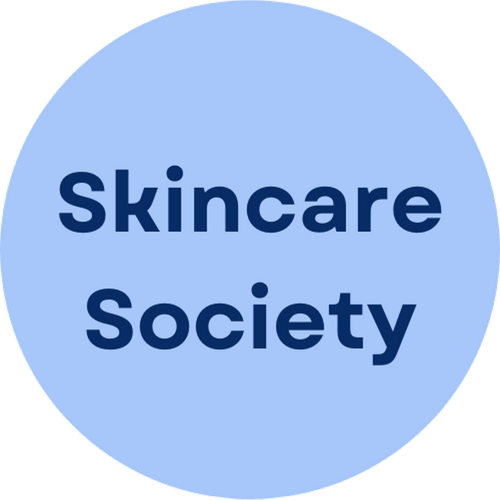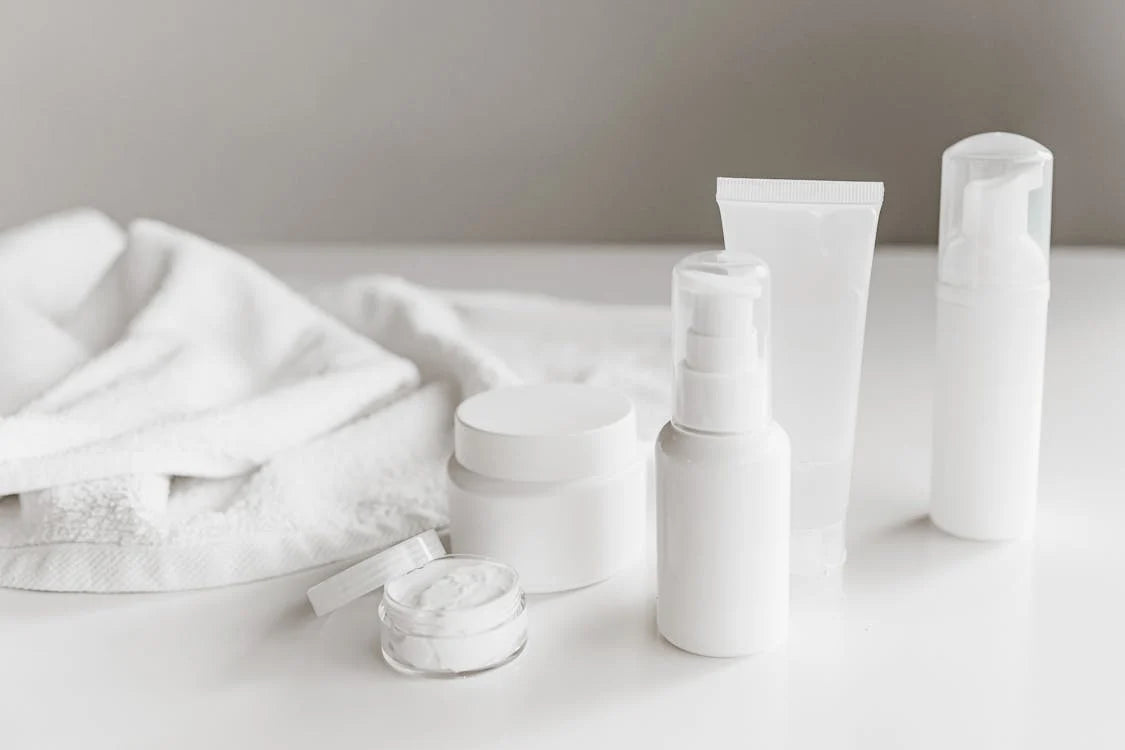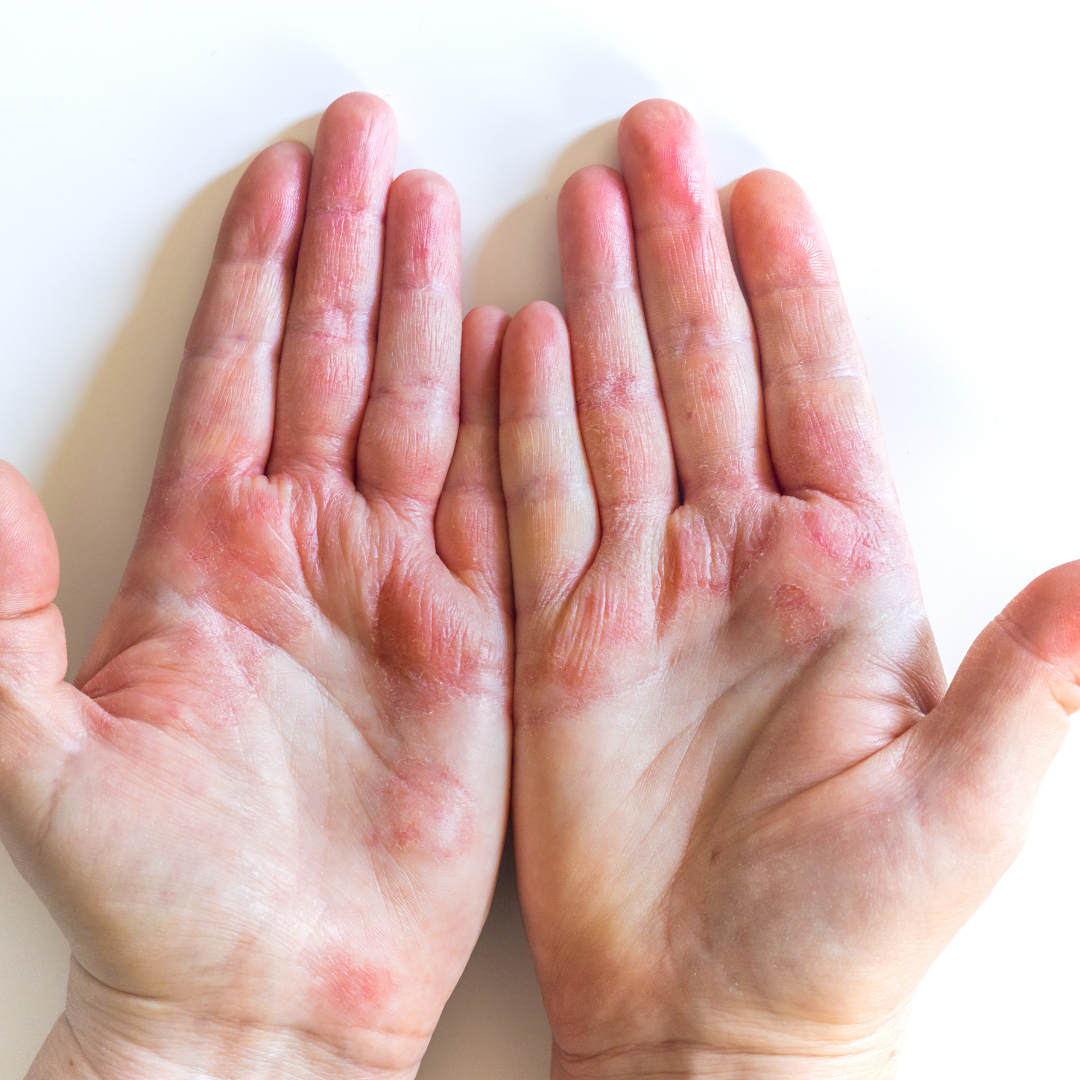Endocrine Disruptors in Skincare (20 Ingredients to Avoid)
Hey, skincare enthusiasts! Today, let's dive into a topic that's crucial for your skin's health: endocrine disruptors. These harmful chemicals can be found in many skincare products, potentially disrupting your hormones and overall well-being. Let's explore what they are, why they matter, and how you can protect yourself.
What Are Endocrine Disruptors?
Endocrine disruptors are substances, both natural and synthetic, that can interfere with your body's endocrine system. This system regulates hormones, which play a vital role in your health. Disruptors can mimic hormones like estrogen or interfere with hormone signaling, throwing your body out of balance.
Hormones play a crucial role in various bodily processes, influencing:
- Metabolism (the process of breaking down food for energy)
- Growth and development
- Emotions and mood regulation
- Fertility and libido
- Sleep patterns
- Blood pressure control
Maintaining hormonal balance is essential for overall health. Factors like stress, diet, and environmental toxins can impact hormone levels. Choosing skincare products free from endocrine disruptors can help support your body's natural balance and promote healthy skin.
The endocrine system comprises several glands, including the hypothalamus, pituitary gland, thyroid gland, thymus, pancreas, pineal gland, and adrenal glands. In males, the system also includes the testes, while in females, it includes the ovaries, and during pregnancy, the placenta. Here's a brief overview of the functions of each gland:
- Hypothalamus: Located in the brain, it controls the endocrine system by receiving information from the nervous system and signaling other glands, such as the pituitary gland, to produce hormones. It regulates mood, hunger, thirst, sleep patterns, and sexual function.
- Pituitary: Situated at the base of the brain, it produces hormones that control other glands, such as the thyroid, adrenal glands, ovaries, and testicles. It also plays a role in growth and development.
- Thyroid: Found in the neck, it regulates metabolism, which is how the body uses energy.
- Adrenal: There are two adrenal glands, one on top of each kidney. They regulate metabolism, blood pressure, sexual development, and the body's response to stress.
- Parathyroid: These four small glands control the body's calcium levels, vital for the heart, kidneys, bones, and nervous system.
- Pineal: This gland, located in the brain, manages the sleep cycle by releasing melatonin, a hormone that induces sleepiness.
- Pancreas: Apart from its role in digestion, the pancreas produces insulin, which controls blood sugar levels.
- Testes: In males, the testes produce sperm and release testosterone, which affects sperm production, muscle strength, and sex drive.
- Ovaries: In females, the ovaries release estrogen, progesterone, and testosterone. They are located in the lower abdomen, with one on each side.
- Placenta: During pregnancy, the placenta, a temporary organ in the uterus, produces estrogen and progesterone to maintain the pregnancy.
While other organs and tissues release hormones, such as the liver and kidneys, they are not considered part of the endocrine system.
The body releases various hormones, including:
- estrogen
- progesterone
- testosterone
- dopamine
- oxytocin
- melatonin
- growth hormone
- luteinising hormone
- prolactin
- thyroid-stimulating hormone
- aldosterone
- DHEA and androgens
- adrenaline (epinephrine)
- noradrenaline (norepinephrine)
- insulin
- glucagon
The Endocrine System: Your Hormone HQ
Your endocrine system is like your body's messaging system. It's made up of glands that produce hormones, which regulate everything from metabolism to mood. Hormones are like your body's chemical messengers, telling your cells what to do.

Why Hormones Are So Important
Hormones play a crucial role in your health, affecting everything from your mood to your metabolism. They regulate growth, metabolism, sexual function, and more. When hormones are disrupted, it can lead to a range of health issues, including skin problems like acne and premature aging.
The Risks and Downsides of Endocrine Disruptors
Endocrine disruptors have been linked to a variety of health problems, including diabetes, obesity, thyroid issues, and reproductive disorders. They can also increase the risk of hormone-related cancers. These chemicals can be slow to break down, leading to long-term exposure and potential health risks.

Common Endocrine Disruptors in Skincare
Many common skincare ingredients are known endocrine disruptors. These include:
Parabens:
- isobutylparaben
- methylparaben
- propulparaben
- butylparaben
Phthalates:
- DBP (dibutyl phthalate)
- DINP (diisononyl phthalate)
- BBP (benzyl butyl phthalate)
- BEP (butyl-ethyl phthalate)
- DNOP (di-n-octyl phthalate)
- DEHP (di-2-Ethylhexyl phthalate)
- DMP (dimethyl phthalate)
- DIDP (dodecyl phthalate)
- DEP (diethyl phthalate)
- Synthetic fragrances
These chemicals are often used as preservatives or to add fragrance to products, but they can have serious health consequences.
Other Nasty Chemicals to Avoid
- Petroleum/paraffin/mineral oil: These can clog pores and prevent the skin from breathing properly.
- Mercury: Found in some skincare products, it can damage neurological functioning.
- Boric Acid: strong reproductive toxin; potent endocrine disruptor; unsafe for use on infant, injured or damaged skin; causes death and birth defects in animals; banned in Canada and Japan.
- Butylated Hydroxyanisole (BHA): human carcinogen; caused brain and liver tumors in animals at low doses; endocrine disruptor; causes allergic contact dermatitis and skin depigmentation; banned in European Union; persistent environmental toxin.
- Propylene glycol: Used to retain moisture, it can irritate the skin and eyes.
- Coal tar: Found in some anti-dandruff hair products, it is a known carcinogen.
- Cyclomethicone and dimethicone: These can trap moisture in the skin, leading to acne and potentially disrupting hormones.
- Fragrance/parfum: Often contains phthalates, which are known endocrine disruptors.
- Formaldehyde: A known carcinogen found in some skincare products.
Even low doses of these chemicals can have a significant impact on human health, as the body's endocrine system is sensitive to even small changes in hormone levels. Studies have shown that exposure to these chemicals, even at low levels, can alter the body's systems and contribute to health problems.
For example, a study of 1070 pregnant women found that the use of certain hair products was associated with lower levels of sex hormones, which could lead to adverse pregnancy outcomes such as growth restriction, preterm birth, and low birth weight.
Protecting Yourself: Choosing Hormone-Friendly Skincare
To protect yourself from endocrine disruptors, opt for skincare products that are free from synthetic fragrances and hormone-disrupting chemicals. Instead, choose natural products that are gentle on your skin and your hormones.
One great option is our whipped tallow balm. Made with organic, grass-fed tallow and pure essential oils, it's a luxurious treat for your skin that won't mess with your hormones. Plus, it comes in a glass jar, reducing plastic waste. If you want to start small, then opt for our tallow soap instead, made with just two natural ingredients ;)

Avoiding Endocrine Disruptors in Daily Life
Endocrine disruptors can be found in many everyday products, not just skincare. To reduce your exposure, avoid plastic packaging, opt for glass or stainless steel containers, and choose organic produce. Be mindful of the products you use and read labels carefully.

Conclusion: Skincare Shouldn't Cost Your Health
Your skin is your body's largest organ, and what you put on it matters. By choosing skincare products that are free from endocrine disruptors, you can protect your skin and your overall health. Remember, skincare should enhance your beauty, not compromise your health or the planet's health.
And that's a wrap on our journey through the world of endocrine disruptors in skincare. Stay tuned for more tips and tricks to keep your skin glowing and your body healthy!



